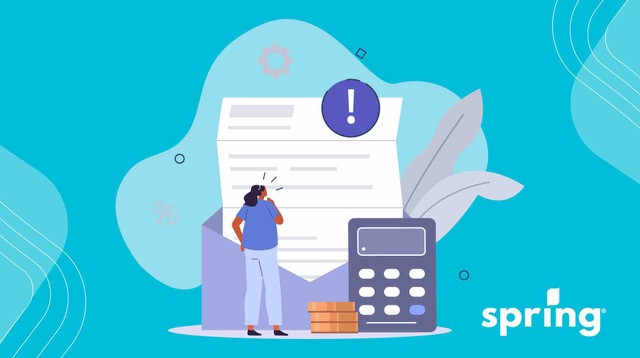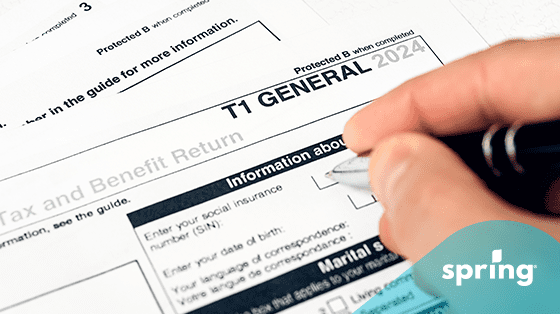If the debt was sold off to a collection agency, don’t stress too much, these agencies are regulated and have laws and regulations they have to follow when trying to collect money from you. Depending on where you live in Canada, these laws and regulations will vary. In Ontario, these laws dictate how long debt collectors are allowed to legally contact you to collect money. These collection agencies will attempt to contact you via phone call, text, email and letters until the debt is paid. If you don’t pay, then these agencies may take action to collect.
What Collections Can Do in Ontario
When it comes to collecting debt in Ontario, collectors have rules and regulations that they need to follow. This is known as the Ontario Debt Collection Act or the Collection and Debt Settlement Services Act. This dictates how collection agencies can contact you, when they can contact you, as well what rights you have as a debtor.
Contact Process
When a collection agency is first trying to get in touch with you, the first means of contact that they must use is a letter. This letter must include:
- Creditor’s name
- The amount of the debt and it’s original due date
- The new current debt balance
- A breakdown of the amount due
- The name of the collection agency as well as the collector
- Information regarding the collection agencies registration in Ontario
- A consumer disclosure statement that states your rights regarding collections
- Contact information for the collection agency such as phone number and mailing address
After they have sent this letter containing the required information, the collection agent then must wait 6 days (weekends included) before they can contact you through other means. This usually involves frequent phone calls as well contacting friends and family to get your current contact information. They can even contact your employer once in order to confirm your employment status.
When They Can Contact You
Once a collection agency starts contacting you, they are restricted to when they are allowed to. They are only permitted to make contact between the hours of 7:00 am to 9:00 pm Monday through Saturday. On Sunday it must be between the hours of 1:00 pm and 5:00 pm. That being said, they are not allowed to make contact on Stat holidays and no more than 3 times in a 7 day period without your permission. These restrictions don’t just apply to collections calls, they apply to any form of contact including:
- Answered phone calls
- Text messages
- Emails
- Voicemails
Collection Agencies and Your Credit Score
Along with taking multiple approaches to contact you, collectors also have the ability to check your credit score. They also have the ability to register the debt you owe on your credit report. Once this happens, it has a negative impact on your credit score and can make it difficult to rebuild your credit afterwards.
What Collectors Can’t do
Just like the act dictates what collectors are allowed to do, it also dictates what they can’t do.
- They can’t add any additional fees to your debt. All they can do is try to collect the debt that you already owe.
- They can’t harass you. This includes threatening, inappropriate or coercing language. They also can’t use any excessive or unreasonable pressure.
- They can’t supply false or misleading information. The information a collection agency or a collector gives you has to be accurate.
- They can’t give any of your debt information to friends and family. While they can contact these people to get your current contact information, they can’t provide any information regarding the debt unless you have given permission or the person is a guarantor who has agreed to take on the debt if you can’t.
- They can’t recommend a creditor to take legal action without notifying you. They must inform you if they are going to make this recommendation before they make it.
How Long Collection Agencies Can Collect Debt For
When collecting debt in Ontario, collectors only have 2 years to pursue legal action against you in order to collect payment. This time period starts when you last made a payment or acknowledged the debt. That being said, even once the statute of limitations expires, you do still owe the debt, it doesn’t disappear.
Statute of Limitations
As mentioned above, the statute of limitations on a debt in Ontario is 2 years. Once this has passed, the collector no longer can pursue legal action against you. That being said, though, if you acknowledge the debt or make a payment at any time during the two years, then the 2 years restarts from that date.
If you are still within the 2 year time period before the statute of limitations has passed, then, not only can the collector take legal action, but they can also take other measures. They can:
- Garnish your wages
- Seize property (Collateral)
- Put a lien on your property
Before they take any legal action though, collection agencies are required to provide written notice to the debtor.
It is important to note that there are certain types of debt that the statute of limitations does not apply to. Some examples of these types of debts are:
- Taxes
- Government guaranteed student loans
- Child support debts
Debt Beyond the Statute of Limitations
After the two years, creditors are unable to take legal action anymore. While some may have taken legal action within the 2 years, others won’t for various reasons. One of the reasons is that court is expensive and if the amount of your debt is smaller than the cost of going to court, they may not be worth it to them.
Even though that collector can’t collect anymore, you do still technically owe the debt. This amount stays on your credit report for up to 6 years and will definitely affect your credit report. The only way to avoid this is to get in touch with the agency immediately as they start contacting you. You may be able to pay it off before the collector adds it to your credit report.
Since the collector can’t collect anymore, they may decide to sell the debt off to a different collection agency who will attempt to get a portion of the money back and get the debt settled.
What if a Collection Agency Does Take You to Court?
If a debt collection agency has decided to take you to court, what happens really depends on how you respond. Once they file the lawsuit, you have to file a defense against the lawsuit. If you don’t then the collection agency will win by default. If you do file then you will get a court date.
At that court date you will either win the case and there will be no judgment awarded or the creditor.collection agency will win and a judgment will be awarded. How this money is collected depends on if you pay the judgment. Based on what you owe and where you live, the agency can pursue wage garnishment or even sell your home if the judgment isn’t paid.
If your collections debt gets to this stage, it is best to contact a lawyer and/or a licensed insolvency trustee. They will be able to help you either avoid going to court or prepare to go to court.
How long a Judgment Lasts in Ontario
Once a judgment has been made, the creditor will then contact the debtor to make payment arrangements. You can then discuss with them a time frame for payments and what you can afford to pay. Keep in mind though, even a judgment debt that is paid in full, it still stays on your credit report for about 6 years. After this period of time, it will then fall off of your credit report.

Complaining About A Debt Collection Agency
If you think a collection agent isn’t complying to the Debt and Collection Settlement Services Act, you are able to contact the agency. This information should have been provided to you on the initial letter you should have been sent. You can always look it up as well.
If this didn’t resolve this issue, or you aren’t happy with the resolution, you can also contact the Ontario consumer affairs office and file an official complaint. If the complaint you are wanting to make is regarding a federally regulated financial institution, then you can file the complaint with the Financial Consumer Agency of Canada instead.
How Long You Can Legally be Chased for Debt in Canada
In Canada, the statute of limitation period on debt is different in every province. Depending on where you live, this amount of time will vary.
| Province/Territory | Statute of Limitations |
| BC | 2 |
| Alberta | 2 |
| Saskatchewan | 2 |
| Manitoba | 6 |
| New Brunswick | 6 |
| Newfoundland and Labrador | 6 |
| Quebec | 3 |
| Ontario | 2 |
| Nova Scotia | 2 |
| Yukon | 6 |
| Prince Edward Island | 6 |
| Nunavut | 6 |
| Northwest Territories | 6 |
How Long Until Debt is Uncollectible in Canada
How long debt is collectable is based on the statute of limitations where you live. Even if that has ended, the collectors may sell the debt and other collectors will try to settle the debt. Many think that after 6-7 years the debt disappears but that isn’t the case.
After this period of time it just falls off of your credit report whether it has been paid or not. While it is unlikely that a collector will try to collect a full or partial payment after this period of time, they still can. They just cannot sue you for the debt anymore.
How to Handle a Collection Agency Calling you For Someone Else
If a collection agency begins trying to collect debt from you and the debt isn’t yours, the first thing you should do is let the collection agency know. After that, call the creditor. See if you can verify why you are being called for the debt and how to correct it. It’s also a good idea to check your credit report to see if the debt is listed there.
Another reason a collection agency calls you is to obtain contact information for a friend or family member that owes a debt. At this point, all they can ask for is a phone number and they can’t disclose any information regarding the debt.
How to Avoid Collections
Dealing with a collection agency can be a very stressful experience. No matter what you owe the money for, there are debt relief options you can consider before your debt reaches collections or once you have been notified of the collections.
Paying off or dealing with that debt is often more doable than you think. One option to consider is debt consolidation. If you are having a hard time managing your credit card debt, this can be a good way to turn the debt into a lower interest rate. By doing this you are converting your debt into manageable payments and reducing the total amount of time it will take to pay off the debt.
Another option would be to talk to a licensed insolvency trustee and/or debt settlement companies. These companies contact your creditors and can reduce the amount of debt you have to make it more manageable. Because some of your debt is usually written off, it does still hurt your credit score but it is much easier to deal with than collections.
The last option, while not ideal, may be to file for bankruptcy. Before you do this though, it is best to get a second opinion. When it comes to bankruptcy, there are certain stipulations and it ultimately depends on the amount of debt that you have. Having a large amount of debt is usually recommended for this option but getting a second opinion will allow you to get some help in assessing your financial situation and if it is worth it.
Overview
Overall, you have more rights than you think when it comes to debt collection in Ontario. Debt collectors are limited to when and how often they are able to contact you. They also have to notify you of your debt as well as any intended legal action in writing. This gives you the debtor, time to resolve the debt or come up with a plan to deal with it.
Depending on where you live, you have between 2-6 years before the collector can no longer proceed with legal action and are no longer able to try to collect the debt from you. Unless they have filed a lawsuit within this time period, the debt may be sold to another collection agency who will be looking for a settlement, but legal action can no longer be taken. If at any point you are contacted by a collection agency it is best to contact a lawyer or a licensed insolvency trustee to figure out what your options are and how you can best resolve the situation.








